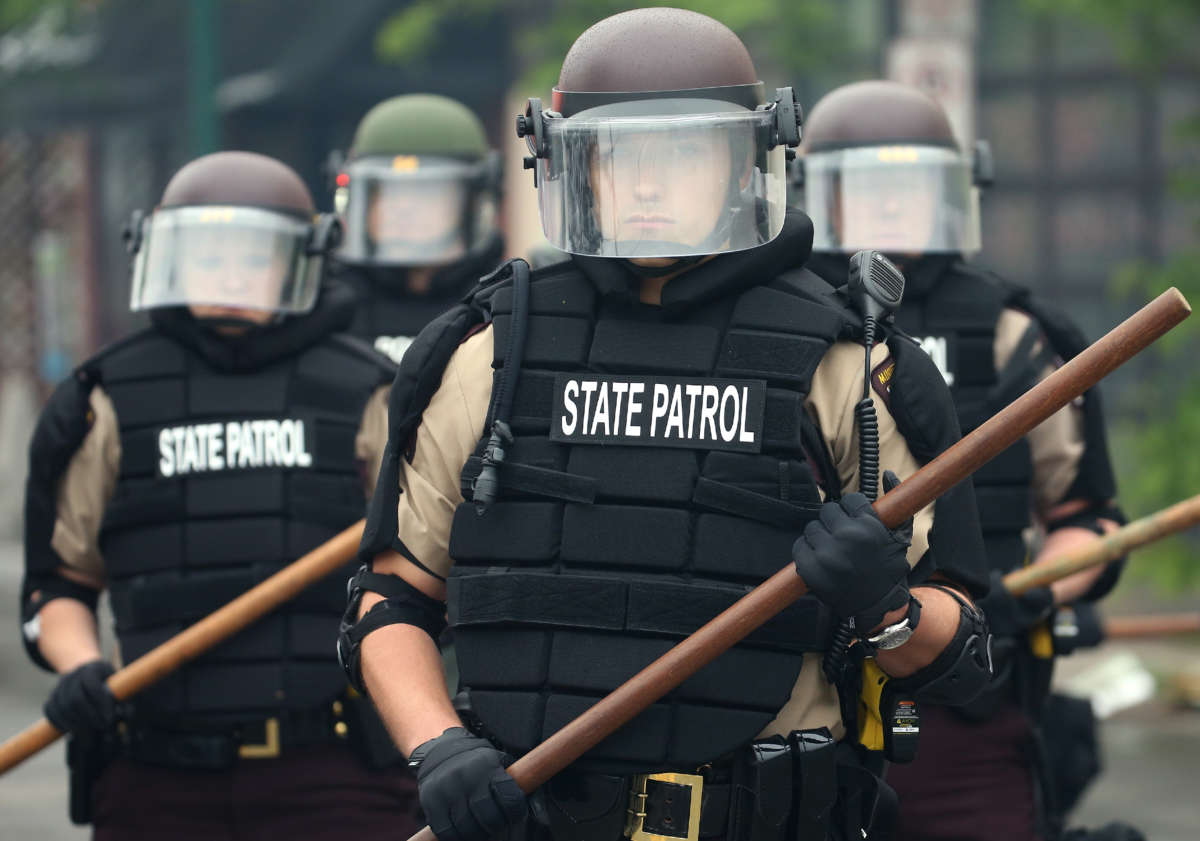CNN correspondent Omar Jimenez, an Afro-Latino reporter for the TV network, was arrested Friday morning while covering the Minneapolis uprising, which took place in response to the police killing of George Floyd earlier this week.
Jimenez was cooperative with the police prior to and during his arrest, but officers did not respond to his questions about his arrest, according to video of the event. The camera crew working alongside Jimenez was also arrested.
“I’ve never seen anything like this,” CNN anchor John Berman, who watched the events unfold in real time back in the studio, said.
CNN decried the arrest of Jimenez and his camera crew as “a clear violation of their First Amendment rights” as journalists, and demanded the employees’ immediate release. Reporters Without Borders (RSF) also condemned the action as “a shocking sight.”
“Reporting on protests is not a crime; it is in the public’s interest,” the organization said in a statement. “While RSF is glad to see the crew was swiftly released and the governor apologized, this should never happen again.”
Minnesota Gov. Tim Walz was quick to apologize to the network for the arrest, and promised that the crew would be released. Shortly after 6 a.m. CT, Jimenez and his crew were indeed let go from detention.
“We’re doing OK, now. There were a few uneasy moments there,” Jimenez said upon his release.
During a press conference later in the day, Walz made a public apology for Jimenez’s arrest, and said he took “full responsibility” for the arrest, adding that the action was “inexcusable.”
“There is absolutely no reason something like this should happen. Calls were made immediately. This is a very public apology to that team,” Walz said. “That should not happen and I want to be clear for those of you listening.”
“The protection and security and safety of the journalists covering this is a top priority,” Walz added. “Not because it’s a nice thing to do. Because it is a key component of how we fix this.”
CNN journalist Josh Campbell described a very different situation for him and his camera crew, who were reporting near the same area that Jimenez and his crew were in.
Campbell, who is white, said that police he spoke with during his reporting were less confrontational, even after he acted in ways they requested him not to.
“I was treated much differently than [CNN correspondent Omar Jimenez] was,” Campbell said. “I’m sitting here talking to the National Guard, talking to the police. They’re asking politely to move here and there. A couple times I’ve moved closer than they would like. They asked politely to move back.”
At no point was Campbell or his crew threatened with arrest.
“They didn’t pull out the handcuffs. Lot different here than what Omar experienced,” Campbell added.
Join us in defending the truth before it’s too late
The future of independent journalism is uncertain, and the consequences of losing it are too grave to ignore. We have hours left to raise the $12,0000 still needed to ensure Truthout remains safe, strong, and free. Every dollar raised goes directly toward the costs of producing news you can trust.
Please give what you can — because by supporting us with a tax-deductible donation, you’re not just preserving a source of news, you’re helping to safeguard what’s left of our democracy.
